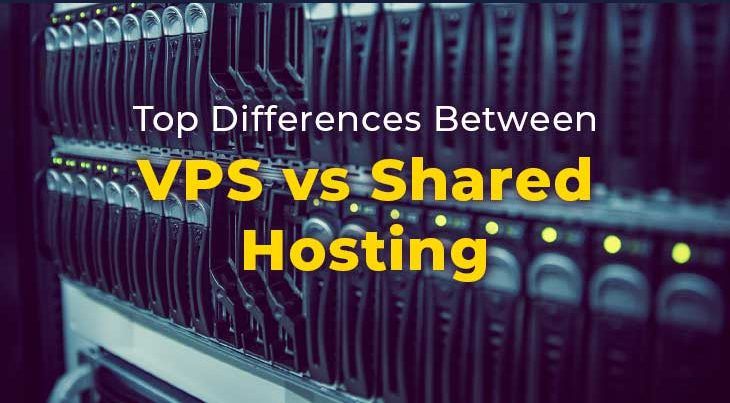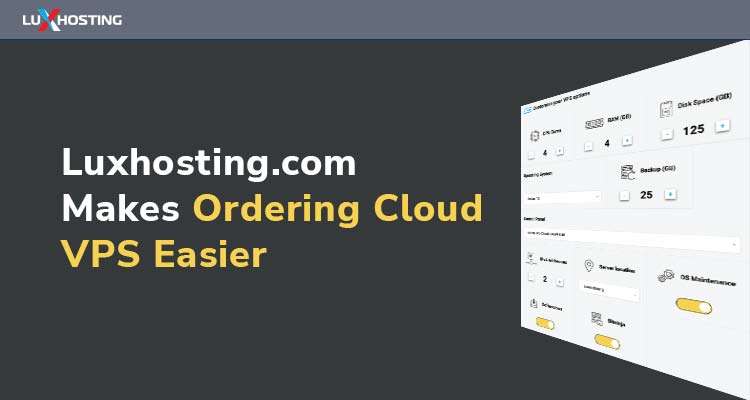In the world of web hosting, there can be definitely many circumstances that appear daunting. Especially if being “techy” is just not your thing. A part of the tasks to complete in your web hosting journey is to select what type of hosting works for you. Oh! Of course. There are different types and to know about each adequately can add another layer to your already daunting experience.
So I am clear as to what my job is here. In this article, we will break down different types of web hosting options available to you and more so look at the pros and cons of VPS vs Shared Hosting.
What are the different types of hosting available?
There are basically 5 main types of web hosting options available to you when considering a web host. There is Dedicated, Managed, Cloud, VPS and Shared hosting.

Dedicated Hosting
In a nutshell, Dedicated hosting surrounds having exclusive rights to your own web server to do as you please. You do have full autonomy without having to deal with external influence. Dedicated hosting is akin to being home alone and ordering pizza. When your pizza arrives, it comes with all your favorite toppings plus the perfect share of cheese. You now can enjoy that pizza, slice by slice at your own leisure. So Dedicated hosting then provides a great level of comfort along with above average resources for Security, Performance, Resource Allocation, Price and so on.
Managed Hosting
This type of hosting is one that is based in providing hosting solutions in a subtype fashion. Managed Service Providers (MSPs) normally share a hosting plan that accompanies infrastructural support along with the management of hardware and maintenance services. You can choose from having a Managed Shared hosting plan, Managed VPS hosting, Managed Cloud hosting etc.
Cloud Hosting
Now as the word suggests, the hosting type is based in the Cloud. Of course if you are not familiar with the term ‘Cloud’, it simply means storage/activity carried out over the internet. Therefore cloud hosting refers to web hosting that allows the accessing of computing resources such as Security, RAM, CPU and Storage over the internet. Cloud hosting has become quite popular in 2021.
VPS Hosting
The term VPS actually means Virtual Private Server. There are two key words of note here: Virtual and Private. Virtual implies that the server given to the user is not a physical one but one based on virtual technology. It is a partitioned equipment that mimics a physical server. Private speaks to the ability of having private resources such as RAM, Bandwidth, CPU and so on. These resources are not shared with anyone else.
Shared Hosting
As the name suggests, “Shared” hosting is where multiple websites are placed on the same server. When you take up this type of hosting, your payment monthly gives you access to resources such as: Storage, Bandwidth, CPU and RAM which you share with other persons on the server. Shared hosting plans are relatively inexpensive because of this reason as multiple persons on one server would drive the cost down.
VPS vs Shared Hosting
Before we move one, let’s have a recap using two analogies. With Shared hosting, it is like you are renting a room of a house. You are the sole owner of that room however, you have access to the living room, kitchen, bath and other amenties that you share with other people. Shared Hosting for this reason usually is inexpensive. With VPS hosting, you own a flat on an apartment building where you have your room, your own living room, kitchen, bath and so on. You don’t share that space with other persons on the building. So VPS is basically a stepup from Shared Hosting at an additional cost.
When looking at VPS vs Shared Hosting, there are different areas of interest you should pay attention to although at the base, Shared hosting is more for static websites (sites with fixed content) like blogs, basic personal content etc., while VPS is more for small businesses, online businesses and personal websites with a large appeal.
Performance: VPS vs Shared Hosting
With VPS hosting, you will get more resources from your hosting provider that will protect your site from any downtime as a result of a traffic increase. The resources you receive will also boost your web speed and make your site a viable online commodity. Shared hosting is convenient for static or small sites however, one should monitor how their site performs with increase traffic.
Security: VPS vs Shared Hosting
The security of your website is vitally important and with VPS hosting you get the better fit. The security of your webssite is more controlled and the features and measures given by the host is often of a better standing. Sites that often take up Shared hosting plans don’t need much security as they are static: just possess information. Also, if you own a small web site that handles client information, Shared hosting is not recommended.
Resource Allocation: VPS vs Shared Hosting
Shared hosting gives the user a number of resources to keep their site hosted properly. However, there are more resources allocated to users with a VPS hosting plan. More hardware power means better performance and greater results. Shared hosting while good is not so reliable.
VPS vs Shared Hosting: Scalability
Shared hosting has its shared amount of perks and benefits however, they are relative to the nature of site you have. In reference to scaling, VPS carries more weight in this department as your concerns for your website crashing when you begin to scale is non-existent.
VPS vs Shared Hosting: Price
Shared Hosting takes the unique advantage here. Plans for Shared Hosting packages are often less. VPS hosting will cost you a bit more but what is important here is to weigh value for money. If you have a personal site with a small amount of content, then a Shared hosting plan may be more convenient for you. If you expect a sizable amount of traffic and with interactive tools, then VPS might be the safter option because you will get greater Performance, Security, Resources and better chances to Scale.
Conclusion
Having looked at VPS vs Shared Hosting, your choice may be much clearer as to which type of hosting you wish to take up. A valuable point to remember here is that the type of website you operate will greatly impact the type of hosting you choose. It is wise not to overspend on resources and perks you don’t need. Choose fast, reliable and affordable VPS hosting here. With that said, happy hosting.



